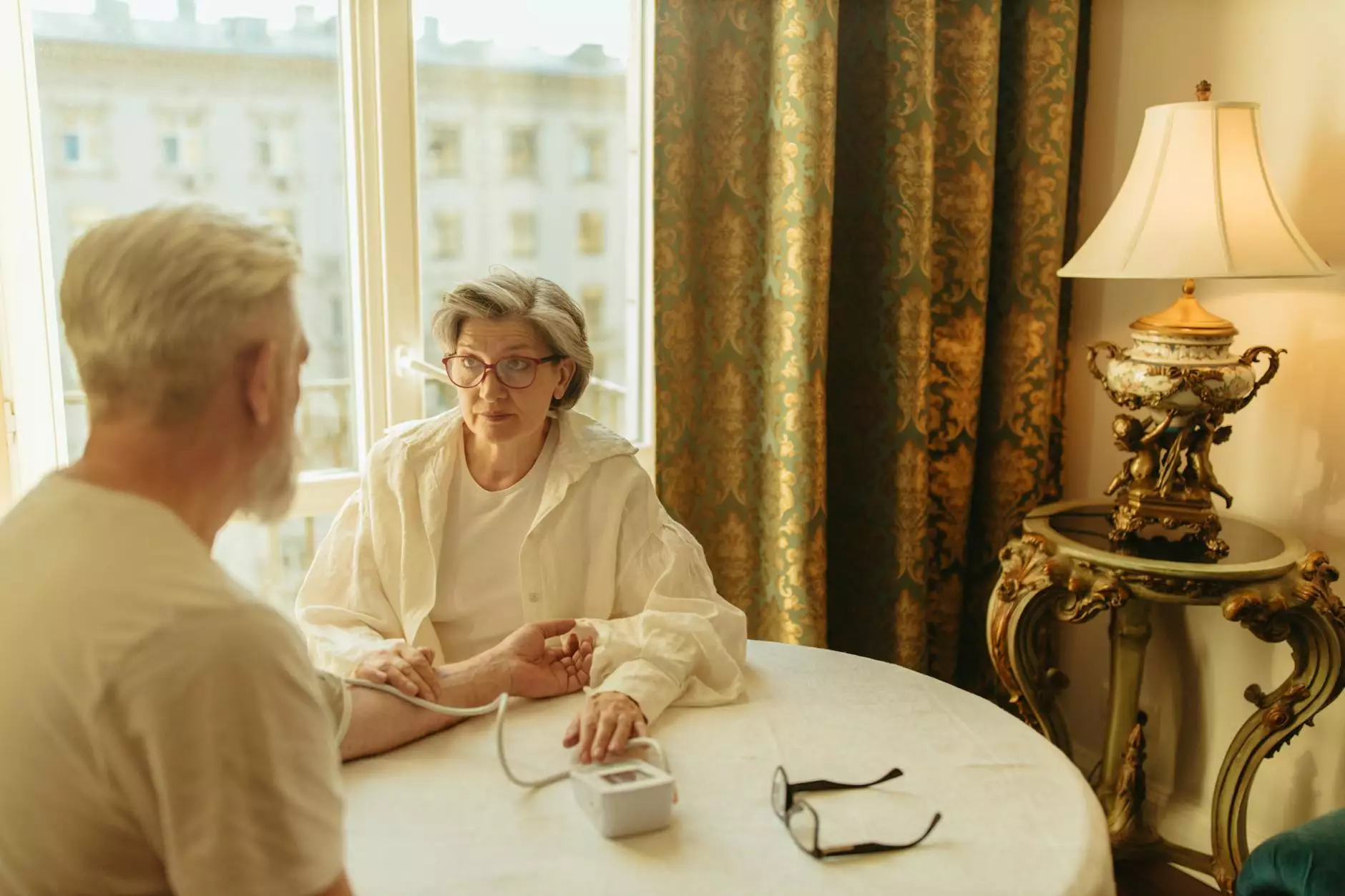The Vital Role of a **Lung Doctor** in Modern Healthcare

In today's world, where air quality can often be compromised, the importance of respiratory health cannot be overstated. This is where a lung doctor, known medically as a pulmonologist, comes into the picture. These specialized physicians focus on diseases and disorders of the lungs and other parts of the respiratory system. Whether it’s asthma, chronic obstructive pulmonary disease (COPD), or lung cancer, a lung doctor is essential for diagnosis, treatment, and management of these conditions.
What is a Lung Doctor? Understanding the Specialty
A lung doctor specializes in diagnosing and treating conditions related to the lung and respiratory system. Their expertise includes a wide range of diseases, such as:
- Asthma
- Chronic Obstructive Pulmonary Disease (COPD)
- Lung Cancer
- Pulmonary Fibrosis
- Sleep Apnea
- Interstitial Lung Disease
The Importance of Lung Health
Maintaining good lung health is necessary not only for proper breathing but also for our overall well-being. Many people do not realize how central the lungs are to other bodily functions. Here are some reasons why lung health is essential:
- Oxygen Supply: Lungs are responsible for oxygenating the blood, which is essential for all body functions.
- Detoxification: The respiratory system helps remove toxins and pollutants from our body.
- Regulation of Acid-Base Balance: The lungs help regulate pH levels through the balance of carbon dioxide in the blood.
Conditions Treated by Lung Doctors
Below are some common conditions treated by lung doctors, along with a brief overview of each:
1. Asthma
Asthma is a chronic condition characterized by inflammation and narrowing of the airways, leading to wheezing, shortness of breath, and coughing. A lung doctor can provide an individualized action plan to manage symptoms effectively.
2. Chronic Obstructive Pulmonary Disease (COPD)
COPD is a progressive disease that causes breathing difficulties. It often results from long-term exposure to harmful substances, primarily cigarette smoke. Effective management can improve quality of life.
3. Lung Cancer
Lung cancer is one of the most common and serious types of cancer. Early detection by a lung doctor significantly enhances treatment outcomes.
4. Pulmonary Fibrosis
Pulmonary fibrosis is a lung disease that occurs when lung tissue becomes damaged and scarred. It leads to serious breathing difficulties. Treatment options can help manage symptoms and slow progression.
5. Sleep Apnea
Sleep apnea is a serious sleep disorder where breathing repeatedly stops and starts. A lung doctor can provide treatments that enhance breathing during sleep.
How to Choose the Right Lung Doctor
Selecting the right lung doctor is critical for effective treatment and management of respiratory conditions. Here are some factors to consider:
- Qualifications: Ensure that the doctor is board-certified in pulmonary medicine.
- Experience: Look for a physician with significant experience in treating your specific condition.
- Patient Reviews: Check online reviews or ask for recommendations to gauge the doctor's reputation.
- Communication Style: Choose a doctor who communicates clearly and makes you feel comfortable.
Diagnostic Tests Used by Lung Doctors
Lung doctors utilize various diagnostic tests to evaluate lung health. Some commonly used tests include:
1. Pulmonary Function Tests (PFTs)
PFTs measure how well your lungs work, including how much air they can hold and how quickly air can be exhaled.
2. Imaging Tests
X-rays, CT scans, and MRIs help visualize the lungs and identify abnormalities.
3. Bronchoscopy
This is a procedure that allows the doctor to view the airway through a thin, lighted tube and can be used for both diagnosis and treatment.
Common Treatments Provided by Lung Doctors
The treatment plan prescribed by a lung doctor may vary based on the diagnosis but can include:
- Medications: From bronchodilators for asthma to antibiotics for pneumonia.
- Oxygen Therapy: Used for patients with chronic respiratory diseases to ensure adequate oxygen levels.
- Pulmonary Rehabilitation: A program designed to improve the physical and emotional condition of people with chronic respiratory diseases.
- Surgery: In cases of lung cancer or severe lung disease, surgical intervention might be necessary.
The Future of Lung Health: Innovations and Advances
The field of pulmonology is rapidly advancing. Innovations in technology and treatment options are constantly emerging. Here are some exciting developments:
1. Telehealth Services
The advent of telehealth has revolutionized the way lung doctors provide care. Patients can have consultations from the comfort of their homes, improving accessibility.
2. Advanced Diagnostic Techniques
New imaging technologies are enhancing the ability to diagnose respiratory diseases with greater accuracy.
3. Personalized Medicine
Researchers are now focusing on personalized treatments tailored to the unique genetic makeup of each patient, especially in cancer treatment.
Conclusion: Caring for Your Lungs
Your lungs play an essential role in your overall health. A lung doctor is a vital partner in ensuring your respiratory health is optimal. Regular check-ups, maintaining a healthy lifestyle, and understanding when to seek help from a specialist can make a world of difference in managing lung health.
For more information about respiratory health and to connect with a qualified lung doctor, visit HelloPhysio's website. Prioritize your lung health today for a healthier tomorrow.









